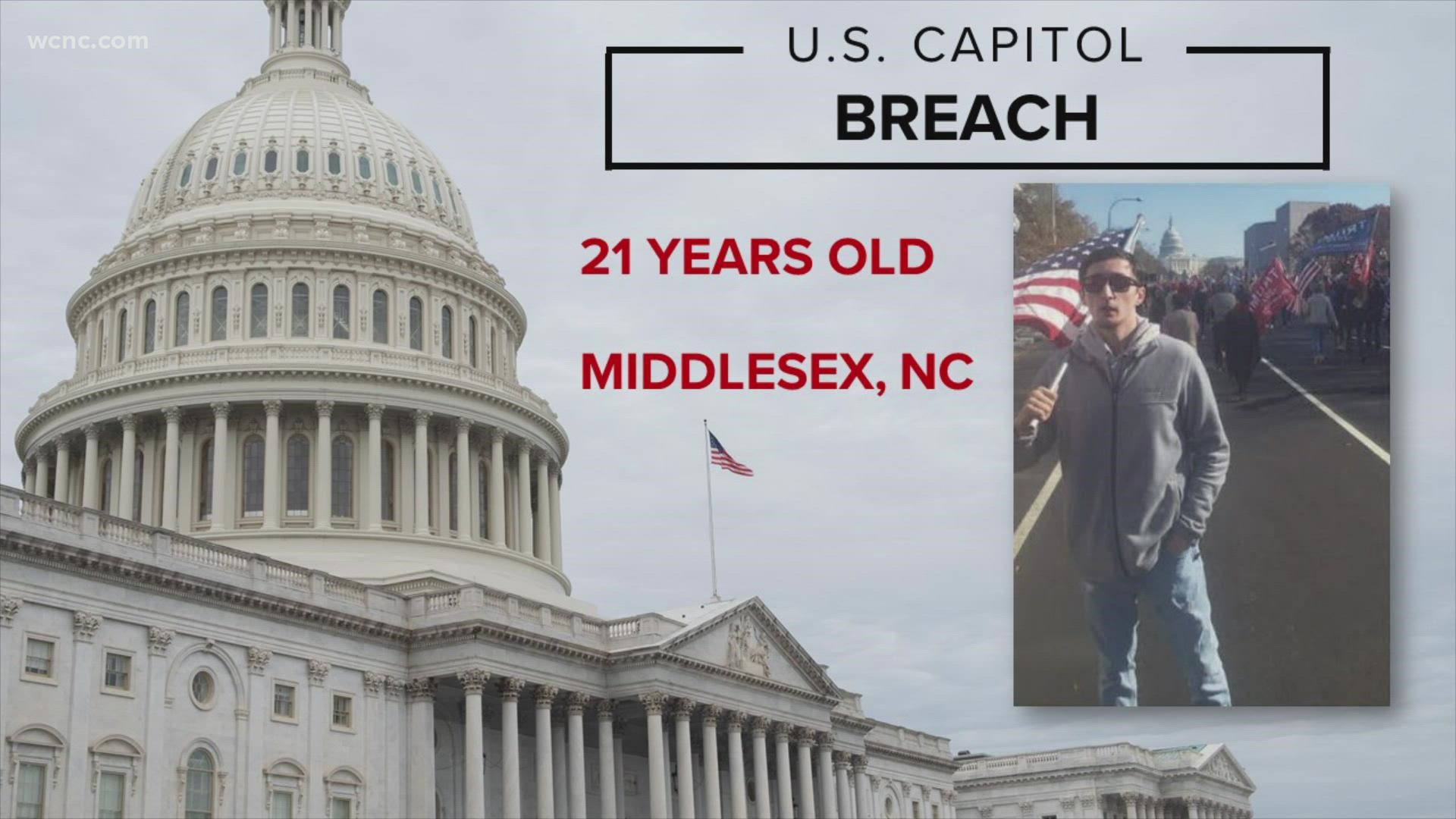CHARLOTTE, N.C. — Editor's note: The above video was previously aired on Feb. 8, 2022.
Federal prosecutors' request for a North Carolina man to remain behind bars while he waits for his trial connected to his alleged involvement in the U.S. Capitol riot on Jan. 6, 2021 was denied by a magistrate judge this week.
In a ruling filed Tuesday, U.S. Magistrate Judge Zia Faruqui allowed Matthew Beddingfield, 21 of Middlesex, to be released to home detention while he waits for his federal trial on several charges stemming from the U.S. Capitol attack.
Beddingfield will be staying with his grandfather. As part of the conditions of his pre-trial release, Beddingfield:
- cannot access the Internet or wifi
- cannot access or use a smartphone with internet
- cannot have contact with his father, who was also allegedly involved in the capitol attack
- must submit to GPS monitoring
- cannot travel to Washington, D.C., except for court proceedings
- must remove his bedroom door to ensure his grandfather can monitor him
In a motion to the U.S. District Court for the District of Columbia, federal prosecutors argued Matthew Beddingfield should have remained in jail while he waited for his trial, citing Beddingfield's criminal history and troubling interactions on social media.
Beddingfield was a suspect in a shooting at a Walmart parking lot in Johnston County when he went to the capitol on Jan. 6. In Aug. 2021, he pled guilty to felonious assault with a deadly weapon with intent to kill or inflicting serious injury.
A few months later, in January 2022, Beddingfield brushed with police again, getting arrested for alleged reckless driving.
Prosecutors argued even after he allegedly stormed the capitol and assaulted officers with the American flag on Jan. 6, 2021, Beddingfield's alleged violent behavior did not stop.
According to federal investigators who went through Beddingfield's phone, the North Carolina man had images that were "highly offensive and deeply troubling hate symbols and hate speech."
Editor's note: The document attached below contains explicit language. Viewer discretion is advised.
According to court documents, Beddingfield said in Instagram and Snapchat messages with others that he "unabashedly expresses his wish that members of those groups meet a violent end and in others he expresses a desire to inflict said violence or death on the same."
Federal prosecutors wrote to the court that they don't argue Beddingfield should be punished for his political or social views, but rather for his dangerous actions on and after the attack on the U.S. Capitol.
As part of his conditions of release, Beddingfield was prohibited from using social media. But prosecutors pointed out in court documents he used Snapchat and Instagram to "engage with and enrage other members of the community with his hate speech, or to illegally sell them THC cartridges."
Additionally, prosecutors said during a search at Beddingfield's home, FBI agents found thousands of rounds of ammunition in his closet, even though he was a convicted felon at the time the ammunition was found.

